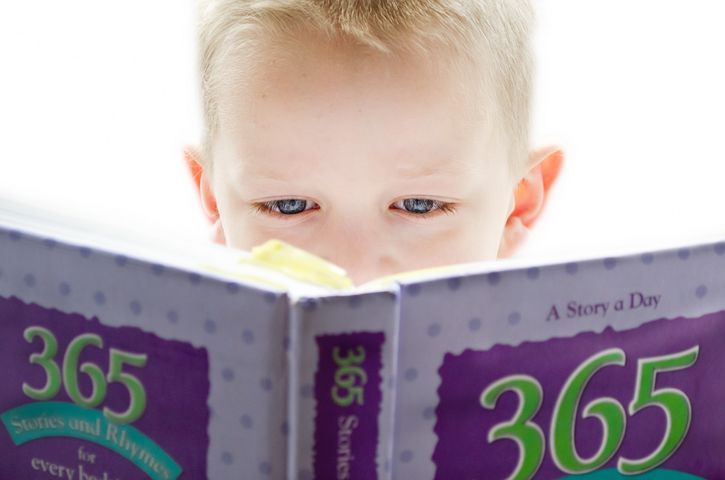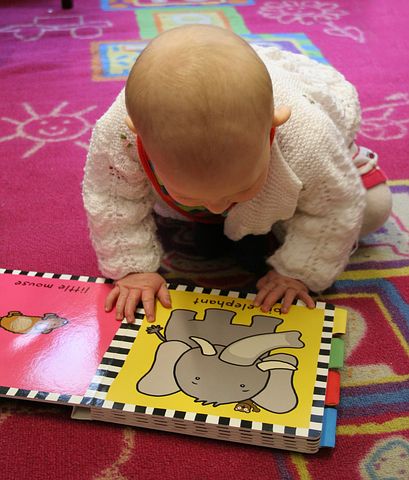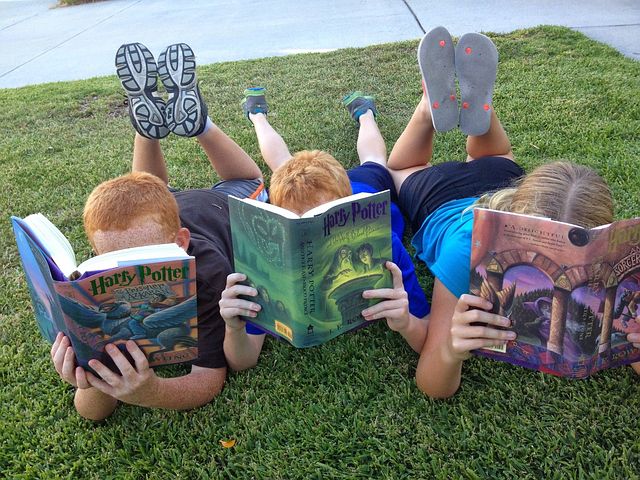 Reading is one of the most important skills your child can acquire. For one thing, it lays the groundwork for success in school and, later, at work. Study after study has shown that children with a solid foundation in literacy have better grades in school and, as adults, higher incomes and a higher quality of life than those without. Reading opens a gateway to worlds of limitless information and imagination.
Reading is one of the most important skills your child can acquire. For one thing, it lays the groundwork for success in school and, later, at work. Study after study has shown that children with a solid foundation in literacy have better grades in school and, as adults, higher incomes and a higher quality of life than those without. Reading opens a gateway to worlds of limitless information and imagination.
This foundation begins long before your child is able to read independently. It begins with sharing silly songs and stories, with manipulating board books, and with reading to your child. 
Benefits of Reading to Your Child
The benefits of reading aloud to your little one can’t be overstated. Research has shown a remarkable number of benefits to reading aloud. One of the most surprising is the discovery that the structure of a baby’s brain is not determined solely by genetics.
Researchers at the University of Chicago showed that early experiences have “a decisive impact on the architecture of a baby’s brain…When you read to your toddler, thousands of cells in his or her brain respond.” New cells are formed, connections are reinforced, some cells are “turned on,” and some become more active. Your child’s brain becomes literally more defined and complex.
In fact, according to the National Commission on Reading, “. . . reading aloud to children is the single most important intervention for developing their literacy skills.”
How soon is too soon? The American Academy of Pediatrics recommends daily reading to children as young as six months. And don’t forget to read to your older children as well. It’s a great way to expose them to concepts and vocabulary they can’t yet decode easily or process for themselves.
Here are some of the benefits you can look forward to when you read aloud to your child:
- Improved speech and communication skills
- Greater empathy
- Improved concentration & self-discipline
- An increase in logic and critical thinking skills
- A stronger academic foundation
- Enhanced cognitive development
You’ll be building a stronger bond between you and your child, giving your child a wellspring of background knowledge, and creating a love of reading.
Which leads us to this:

Independent Reading
Children who spend the most free time reading outside the classroom have consistently been found to have larger vocabularies, better reading comprehension, stronger communication skills, and greater overall knowledge than those who don’t read for pleasure.
Children who love to read become lifelong learners.
You can nurture this love by helping your children find books they’ll enjoy and making sure the books they choose are not too hard (though a bit of a challenge is good). It’s also a good idea to encourage your children to try out different genres and types of writing (like poetry, articles, short stories, and novels).
Where We Come In
 Your child’s love of reading and learning begins with you, but we’re here to support you as much as we can. To that end, we’ll be sharing reviews and discussions of all types of children’s books–fiction, nonfiction, picture books, chapter books, interactive books, and more. Our blog will have “best of” lists (admittedly subjective), articles, reading activities you can do with your child, and more.
Your child’s love of reading and learning begins with you, but we’re here to support you as much as we can. To that end, we’ll be sharing reviews and discussions of all types of children’s books–fiction, nonfiction, picture books, chapter books, interactive books, and more. Our blog will have “best of” lists (admittedly subjective), articles, reading activities you can do with your child, and more.
You might also enjoy our sections on Active Play, Creative Play, Discovery Play.
And please let us know if there’s a particular topic or item you’d like us to cover.
*Note: Some of the links to items reviewed and featured on our blog are affiliate links, which means I receive a small commission when from purchases made through those links.
